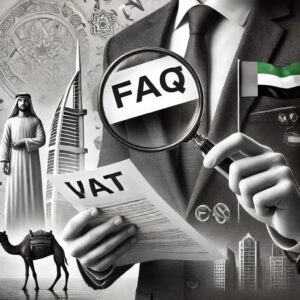The UAE is well-known for its rapidly expanding economy and thriving business environment. With a multitude of companies operating within its borders, it is essential to maintain transparency and financial integrity. One crucial aspect of ensuring this transparency is through auditing. Auditing serves as a means to verify the financial accuracy and compliance of companies with the applicable regulations. But, do all companies operating in the UAE have to undergo this process? In this article, we will explore the audit requirements in the UAE and whether every company is mandated to undergo auditing.
Audit Requirements in the UAE
In the UAE, the requirement for companies to undergo auditing is primarily influenced by their legal structure, size, and activity. While not all companies are required to be audited, there are specific regulations and criteria that determine whether an audit is mandatory. The regulatory landscape in the UAE is a complex one, with both federal and emirate-level authorities playing a role in setting audit requirements. To understand this better, let’s look at each of the requirement as per various statute and regulations:
-
Commercial Companies Federal Law:
Under the Commercial Companies Federal Law, No. 32 of 2021, Chapter 2, Article 27 – Every Joint Stock Company or Limited Liability Company in the Mainland should have one or more auditors to audit the accounts of the Company on a yearly basis. The companies are required to apply the International Accounting Standards and Practices in the preparation of its periodical and annual accounts
-
Audit for Trade Licence Renewal:
For the renewal of a free zone trade licence, companies that are registered in Free Zone and own a Free Zone Trade Licence shall be required to submit an audited annual financial statement.
-
UAE Corporate Tax Law:
As per the Ministerial Decision No. 82/2023, all Taxable Persons deriving revenue exceeding AED50,000,000 (fifty million) during the relevant tax period, and all Qualifying Free Zone Person(s) (regardless of its Revenue) are required to prepare and maintain audited financial statements. In the case of all other Taxable Persons, the Federal Tax Authority can ask for financial statements from any Taxable Person.
-
Other Legal Requirements:
- Free zone companies are also required to submit the audited financial statement to the prescribed authorities. For instance, as per DMCC Regulations, Companies registered with FZP must submit the audited financial statements within 180 days from the end of the financial year. Dubai World Central (DWC), Dubai Airport Free Zone (DAFZA), Jebel Ali Free Zone (JAFZA), Dubai Silicon Oasis (DSO) and Dubai International Financial Center (DIFC) also require the Free zone companies to submit the Audited financial statements within the stipulated timelines.
- Foreign companies are mandatorily required to submit audit reports along with the audited financial statements of the its branch registered in the UAE every year.
- The liquidator’s audit report of companies under liquidation is prepared based on the audited financial statements.
-
For Management Decisions
In order to gain a better understanding of their finances, assessment of business progress and evaluation of the performance of such an entity, certain companies in the United Arab Emirates have had their books audited. The auditor shall review the books of accounts and provide appropriate information for management decisions. To provide shareholders with a clear picture of the company’s net worth, the owners of the company get the books of accounts audited every year.
-
Third-Party Requirements
Banks, non-banking financial institutions and other lenders insist companies to get their books of accounts audited by an audit firm. In order to guarantee the financial creditworthiness of companies dealing with them, dealers and suppliers require such companies to submit audited financial statements.
Grab Best Offer on Accounting Services!
In conclusion, it is essential for businesses to familiarize themselves with the specific regulations and requirements that apply to their legal structure and industry. Compliance with audit requirements can enhance transparency, accountability, and investor confidence, contributing to the overall stability and growth of the company. Companies should seek professional advice to ensure they meet the applicable audit obligations. We, at BCL Globiz, have a team expertized in the Audit and Advisory services. Please feel free to reach out to our experts to know more about our auditing and other services.








 UAE
UAE UAE
UAE INDIA
INDIA UK
UK


